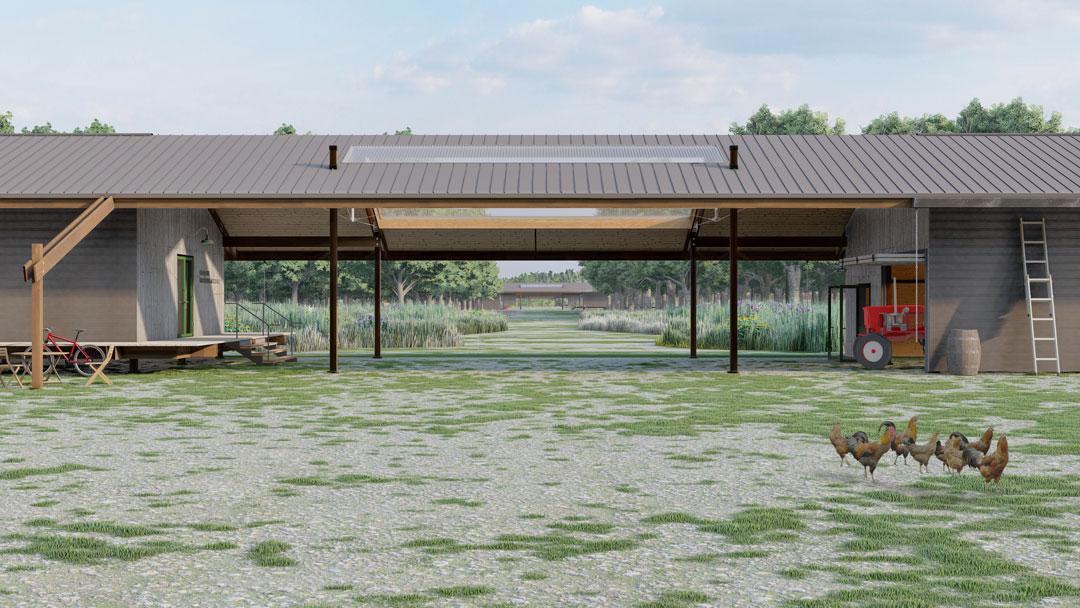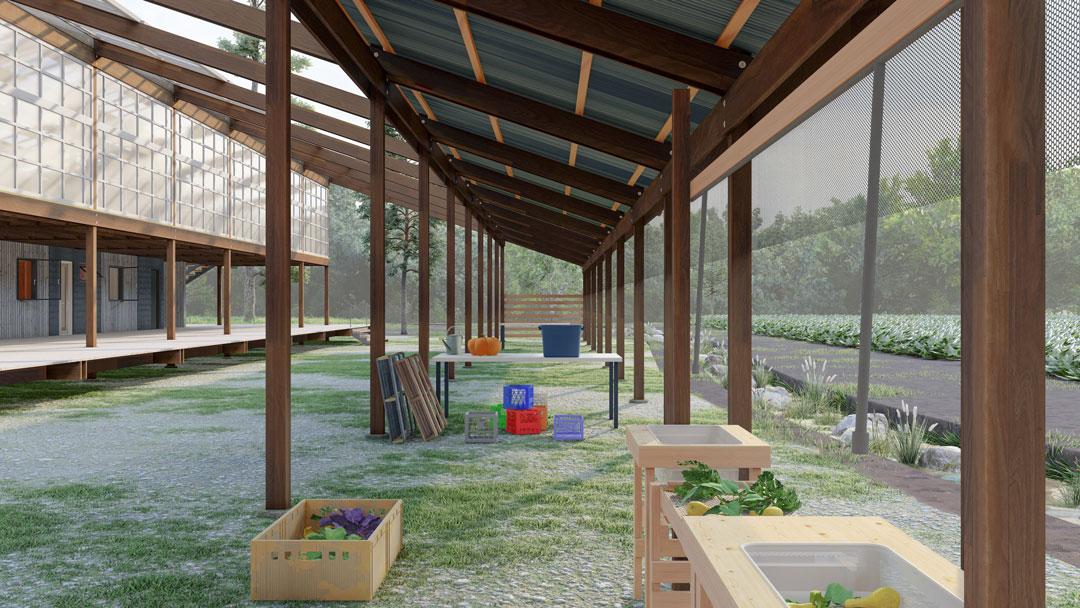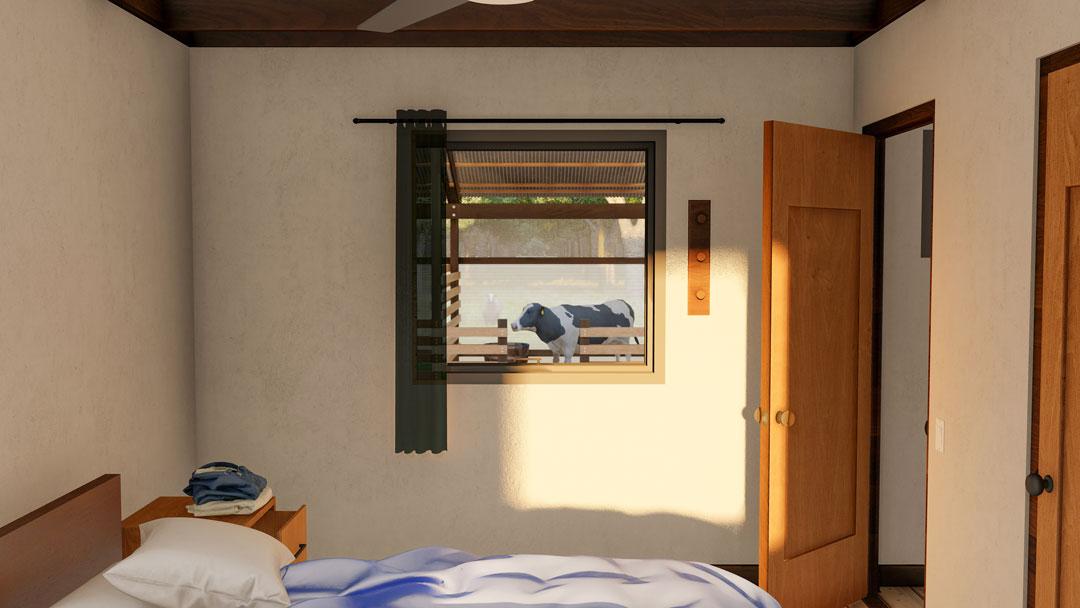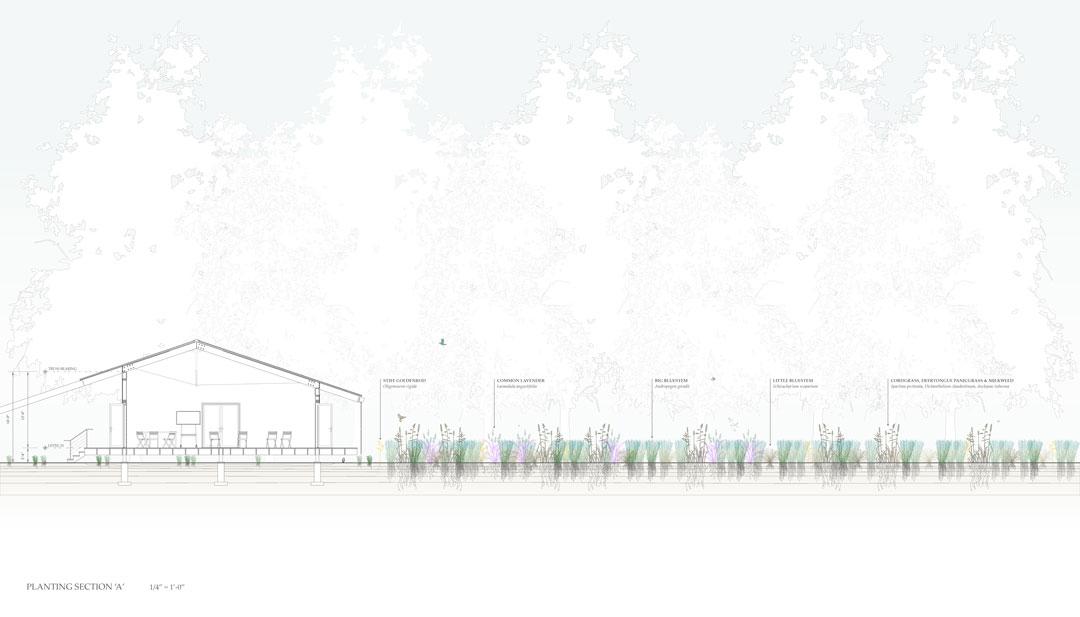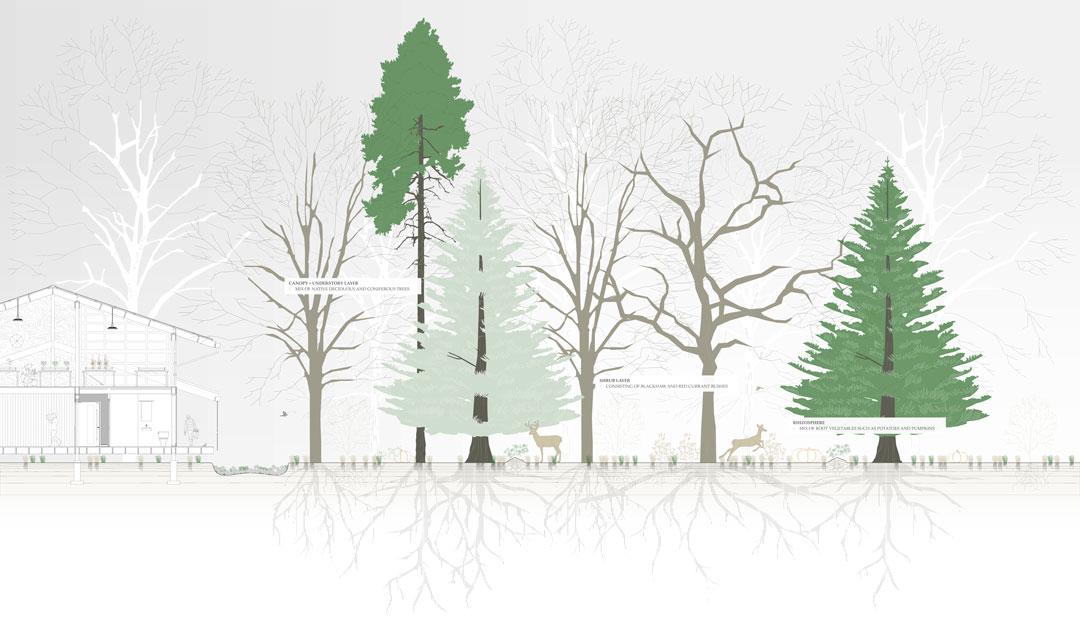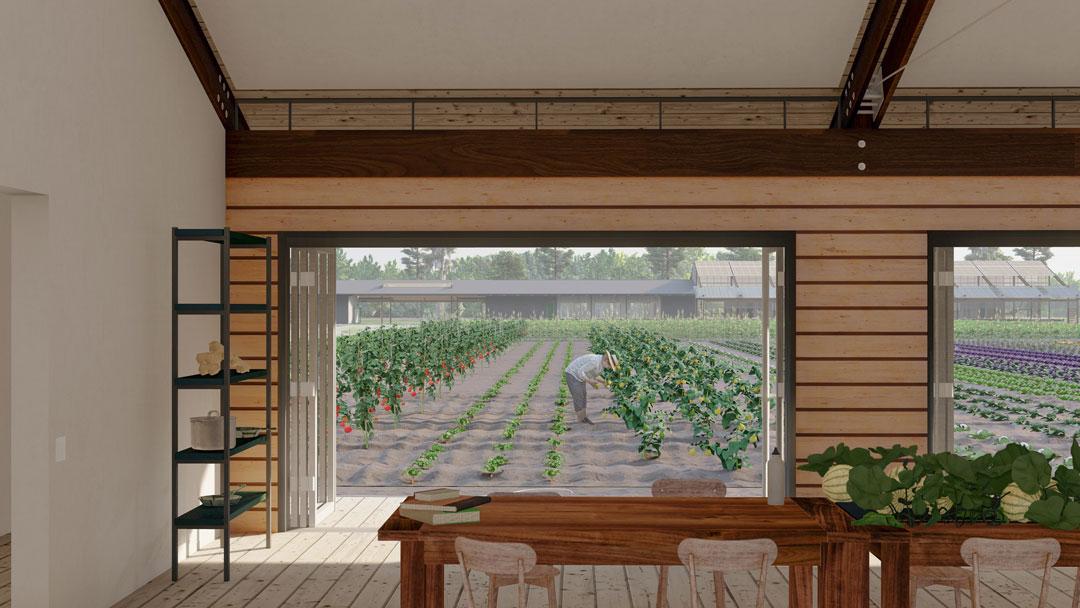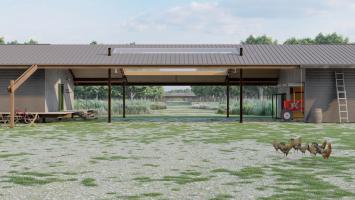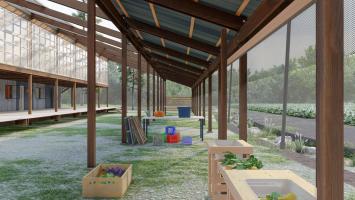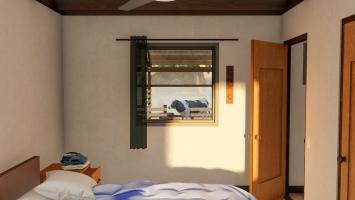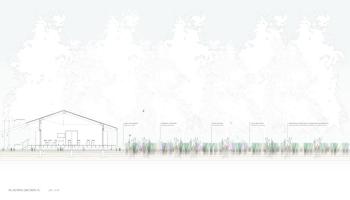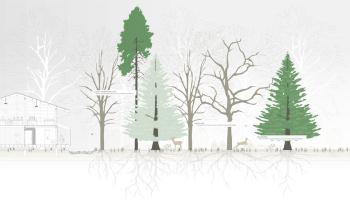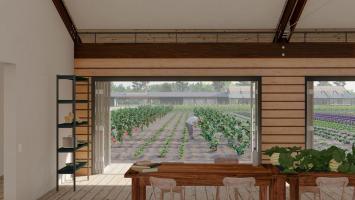Since the rise of industrialization and growth of urban centers, societal binaries have perpetuated an urban-rural divide that has led to a misconception of the rural. Combined with the exploitative and destructive processes of commercialized, industrial agriculture, the value of rural landscapes has become increasingly instrumental; however, these spaces should be recognized for their intrinsic value. This thesis explores how an organic approach to farming adds value back to the rural identity and facilitates ecological care for landscapes that are not only productive, but principally reproductive.
Embedded within the research is a design proposal, situated in the rural Midwest, for an Institute of Regenerative Agriculture. Acknowledging the subjectivities and interdependencies of human and non-human species and demonstrating a negotiation of material and space that achieves reciprocity between architecture and landscape, the design puts forth an argument for the already present and ever-increasing inherent value of rural landscapes.
The entire site, from prairie to food forest, is interpreted as a sequence of four agrarian situations, with three gabled buildings. A portion of each building is raised on pier and beam foundations as a response to the nature of the soil, which is prone to flooding. The remainder of the building sits on the gravel, is more open, and houses programs that are prepensely dirty. The raised portions of the central barn and the greenhouse building contain residential spaces. As a site of education and community activism, the lodges are designed for both students and local Oxford farmers interested in switching over to organic practices.


